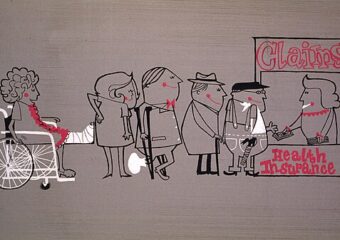Director: Tom Hooper
Screenplay: Lucinda Coxon
Studio: Focus Features
Release date: 22 January 2016
Run time: 120 minutes
According to the art:
A true story of a married couple in the early 20th century seeking gender reassignment surgery offers insights on empathy and on the lengthy arc medical advances and social movements must travel before they are accepted.
Synopsis:
As the movie opens, the married artists Einar and Gerda Wegener are working out of their apartment in Copenhagen. The time is around 1908 and they have been married for just a few years. They do not have children as yet, but they have hopes that they would soon.
Einar is a painter of Scandinavian landscapes and Gerda is a figurative painter. When the model for a painting Gerda is working on fails to appear one day, she asks Einar to take the model’s place. Einar would need to pose with the model’s dress and assume a feminine posture. In posing as a woman, Einar’s simmering desire to become a woman comes to a boil.
At first Gerda finds Einar’s interest in posing as a woman an interesting diversion and as a means to have some fun at various social events. But, Einar becomes more and more serious about his interest in transitioning to a woman in more than just wardrobe and affect. As an early step in that direction, he takes on the name Lili Elbe and the pronoun “she.” She gives up painting and becomes Gerda’s primary model. Gerda’s paintings become highly sought after with her new model.
Lili’s quest to become a woman intensified over the subsequent years and extended to hoping she could acquire a uterus and eventually give birth. With Gerda’s help, Lili eventually finds a surgeon in Germany who is willing to perform a series of risky procedures that will transform her into a woman. After the operations, Lili became the woman she wanted to be, but without the availability of anti-rejection drugs and antibiotics, she died in the hospital with Gerda at her side.
Analysis:
This movie is the true story of Einar and Gerda Wegener from a few years after they were married in 1904 until Lili’s death in 1931. Viewed from the time the movie was produced in 2015, it offers particular insights on empathy and on the lengthy arc medical advances and social movements must travel before they are accepted.
Gerda is a model of empathy. Once she realizes Lili is serious about becoming a woman, she overcomes her sadness about what will become the end of a happy marriage and takes on Lili’s cause. She helps Lili with clothes and through social situations. Eventually she goes so far as to help Lili find a surgeon who will perform the gender reassignment operations. The apogee of Gerda’s empathy manifests when Lili in making her case to the surgeon says, “I believe I am a woman,” and Gerda adds, “I believe it too.”
The series of operations to complete Lili’s gender reassignment took place in 1930 and 1931. Eighty years later, Lili could have come much closer to the gender reassignment she wanted. But even with current surgical techniques, hormonal supplements, and psychological support, she still would not be able to receive a uterus and give birth. That could very well still be the case 100 years after Lili’s first operations, and so the arc will be at least that much longer. Despite the mounting empathy for transgender people in 2015, they continue to seek acceptance in many parts of the United States and other countries around the world. Rather than a celebration of general empathy and acceptance, the movie forecasts that the arc of time to get there will extend many more years yet.
Also:
2016 Academy Awards: Best Performance by an Actress in a Supporting Role for Alicia Vikander as Gerda Wegener
2016 Screen Actors Guild Awards: Outstanding Performance by a Female Actor in a Supporting Role for Alicia Vikander as Gerda Wegener



